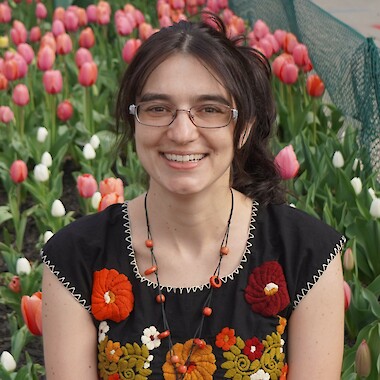
Mailing Address
Isabella Bertani
Assistant Research Scientist
Chesapeake Bay Program Office
Dr. Isabella Bertani is an assistant research scientist with UMCES at the USEPA Chesapeake Bay Program Office (CPBO). She supports the CBPO Modeling Team by performing statistical data analyses aimed at informing the development and improvement of models used to predict nutrient and sediment delivery to the Bay under different management scenarios. She is a quantitative ecologist with a focus on developing predictive modeling tools that quantify aquatic ecosystem responses to anthropogenic pressures. Before joining UMCES and the CBPO, she worked on exploring environmental drivers of harmful algal blooms in Lake Erie and long-term trends in water quality in high-mountain lakes in Italy. She received her PhD in Ecology at the University of Parma (Italy).

